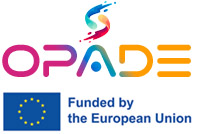Project
280M of people worldwide suffer from major depressive disorders (MDD)
Although there is a well populated therapeutic landscape of anti-depressants, the number of patients in remission is particularly low with not more than 6% of the patients who fully benefit from the current therapeutic journey.
OPADE’s objective is to identify key biomarkers that support the decision-making process of the healthcare providers through the development and commercialisation of an AI (artificial intelligence) / ML (machine learning) -predictive tool. The project focuses on the gut–brain-axis which plays a major role in MDD. Through clinical investigations, the consortium partners will study the combination between genetics, epigenetics, microbiome and inflammatory networks to:
- Establish patient profiles to predict & optimise the efficacy of the antidepressants prescribed with an increase in the remission rate and reduction of impairment of real-life functioning,
- Establish the possible correlation between neuroinflammatory indices, target indicators of the microbiome, metabolomics, immune-profile linked, epigenomic, enzymatic algorithms,
- Evaluate molecular and non-molecular biomarkers that may represent predictive indices of recurrence,
- Improve the diagnostic accuracy for primary prevention,
- Evaluate retrospectively, using accurate anamnesis, the onset of depressive symptoms in adolescence,
- Establish how much and to what extent blood biomarkers correlate with other specific biomarkers.

350 patients between 14 and 50 years will be recruited in 6 EU and international countries for 24 months.
Real-time EEG and patient cognitive
assessment will be collected
Real-time EEG and patient cognitive assessment will be collected
with blood, stool and saliva samples. Results and analysis will be used to train the AI / ML predictive tool, the main outcome of the project. A patient empowerment tool will be deployed over the project duration to ensure patient commitment and to translate patient stories into data.
with blood, stool and saliva samples. Results and analysis will be used to train the AI / ML predictive tool, the main outcome of the project. A patient empowerment tool will be deployed over the project duration to ensure patient commitment and to translate patient stories into data.




